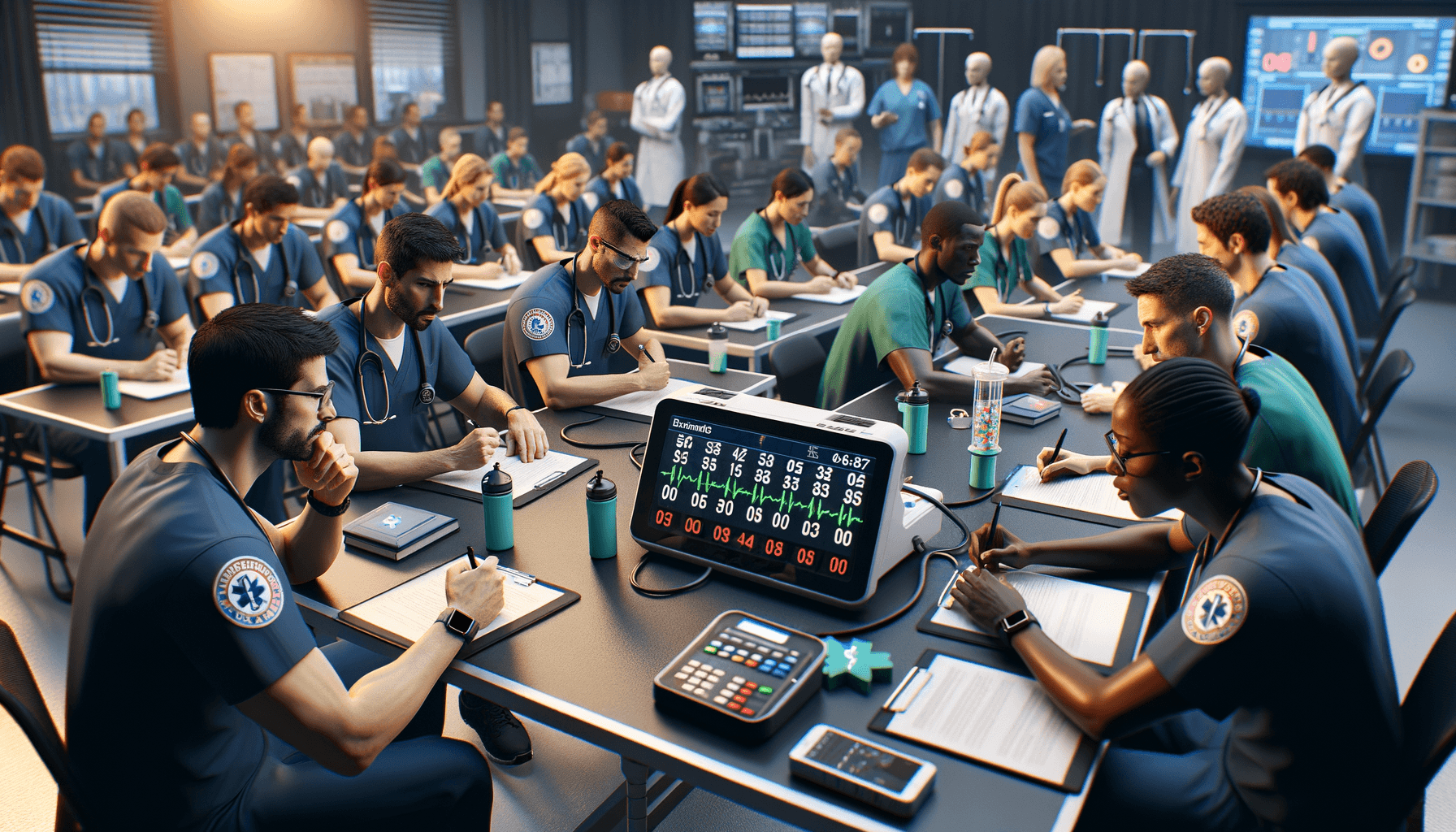
The Critical Care Paramedic Certification (CCP-C) qualifies individuals for several advanced roles within emergency medical services and hospital settings. Job roles typically include:
Critical Care Paramedics provide advanced medical care to critically ill or injured patients. Their responsibilities include administering medications, performing advanced respiratory therapy, and utilizing complex equipment, such as mechanical ventilators and intra-aortic balloon pumps.
Flight Paramedics operate in air medical services. They are responsible for providing rapid in-flight medical care during aeromedical evacuations or rescue operations. This role demands proficiency in managing trauma emergencies, cardiac life support, and other critical conditions mid-flight.
Hospital-based Paramedics work within hospital settings, often in emergency rooms or intensive care units. They assist with the comprehensive management of critical patients, including continuous monitoring and immediate intervention as needed.
Tactical Paramedics are deployed in law enforcement operations and are responsible for delivering emergency care in hostile or unsecured environments. They must be adept at trauma care while ensuring their own safety and that of their team.
Critical Care Paramedics perform tasks such as:
Flight Paramedics are tasked with:
Hospital-based Paramedics focus on:
Tactical Paramedics engage in:

The average salary for these roles varies based on geographic location, experience, and specific employer but typically ranges as follows:
Organizations frequently seeking certified Critical Care Paramedics include:
The demand for highly skilled paramedics, especially those holding a Critical Care Paramedic Certification (CCP-C), continues to grow due to the increasing complexity of patient care needs and expansion of services that require high-level medical interventions outside traditional hospital settings. This certification opens doors to specialized fields like aeromedical services and tactical medicine, which are expected to expand further as communities increase their focus on comprehensive emergency preparedness and response capabilities.
To be eligible for the Critical Care Paramedic Certification (CCP-C) exam, candidates must be experienced, master-level paramedics. This certification is not aimed at entry-level paramedics but rather at those who have substantial experience in critical care transport medicine across various environments such as pre-hospital, inter-hospital, and hospital settings.
Holding a CCP-C certification significantly enhances job opportunities in specialized medical transport roles. Employers often view this certification as a testament to the candidate's advanced knowledge and skills in critical care transport, making them more competitive for positions in high-acuity transport settings.
The CCP-C examination consists of 135 questions, of which 110 are scored and 25 are unscored pilot items. Candidates are given 2.5 hours to complete it. The exam tests advanced knowledge required for critical care transport medicine, not just foundational paramedic skills.
Candidates should ensure they have a robust understanding of all aspects of transport medicine, not just those they regularly encounter in their current roles. This includes areas like neonatal transports and other specialized missions which they may not handle frequently. Reviewing the detailed content outline provided by the certifying body is crucial for comprehensive preparation.
While job availability can vary by region and specific medical services demand, generally, there is a strong market for paramedics with specialized certifications like the CCP-C. These credentials demonstrate advanced skills and knowledge that are highly valued in critical care and flight paramedic roles.
Salaries for critical care paramedics can vary widely depending on geographical location, type of employer (e.g., hospital vs. private transport service), and individual experience levels. However, typically, these positions offer higher compensation compared to general paramedic roles due to the specialized nature of the work and the advanced skills required.
By ensuring comprehensive preparation and understanding the broad scope of knowledge required, candidates can enhance their chances of passing the CCP-C examination and securing advanced roles in critical care transport.